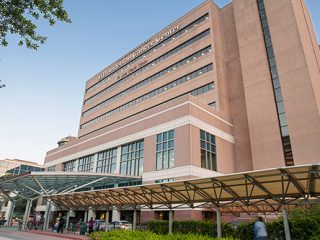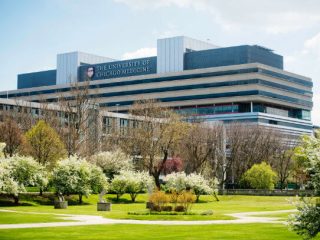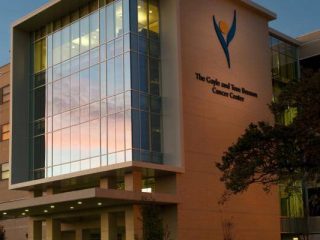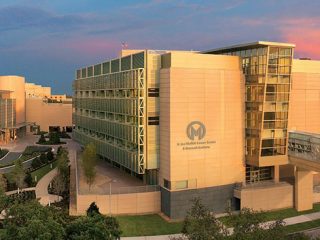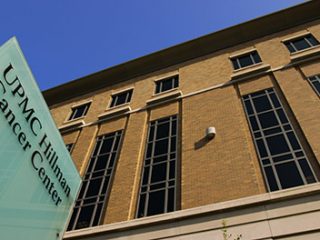Importance of Finding a Mesothelioma Cancer Center
Selecting the right cancer treatment center for a mesothelioma patient is not an easy task, but it might be the most important decision a family can make for a loved one.
Do it carefully, and do it with urgency. The difference between cancer centers — when it comes to the treatment of malignant mesothelioma — can be startling.
There are hundreds of good cancer centers spread across the U.S., but only a small percentage of them really excel in the treatment of mesothelioma, the rare and aggressive cancer caused by asbestos exposure.
Making the right choice could mean the difference between a prognosis of 6-12 months and one that leads to years as a cancer survivor by keeping the disease in check.
Find a mesothelioma specialist and specialty center who knows the latest, cutting-edge treatment advances. Don’t accept the typical gloom-and-doom approach that was so prevalent just a few years ago — even at well-known cancer centers.
Clinical trials at mesothelioma specialty centers are testing better drugs and a more targeted, personalized approach to treatment today. Although there still is no definitive cure for mesothelioma, survivors are living three, four or five years and beyond after a diagnosis. Some are hitting the 10-year mark.
Looking for the Best Mesothelioma Treatment?
We'll help you find the top mesothelioma doctors and cancer hospitals near you.
Top Mesothelioma Treatment Centers
-
MD Anderson Cancer Center, University of Texas
Oncologist Anne Tsao, M.D., director of the Mesothelioma Program at the MD Anderson Cancer Center in Houston, is a big believer in the personalized, multidisciplinary approach to treatment, available only at the large centers. The combination of chemotherapy, radiation and surgery has allowed patients easily to exceed that median survival rate. MD Anderson also is well-known for its laboratory work, using it to offer cutting edge treatment options. Thoracic surgeon David Rice, M.D., has been instrumental in the success of the mesothelioma program with both his surgical technique and his research.
-
University of Chicago Cancer Center
The mesothelioma program at the University of Chicago has a history of more than 20 years and a dedicated team of scientists, pathologists, radiation oncologists, and surgeons who meet regularly to discuss their cases. Oncologist Hedy Kindler, M.D., directs the program that sees an estimated 100 mesothelioma patients, who come from across the country for her expertise annually. She is a two-time president of the International Mesothelioma Interest Group and a science advisory board member of the Mesothelioma Foundation.
-
Abramson Cancer Center, University of Pennsylvania
The University of Pennsylvania’s mesothelioma and pleural program has been a leader for many years, utilizing the vast resources of one of the nation’s premier cancer centers. Its combination of researchers and clinicians is difficult to match. The mesothelioma program specializes in interventional diagnostic and therapeutic techniques. Program director and thoracic surgeon Joseph Friedburg, M.D., is a nationally respected authority on pleural mesothelioma.
-
Ochsner Cancer Institute
The state of Louisiana has one of the highest mesothelioma incidence rates in the country, providing the backdrop for the recent return of renowned thoracic surgeon Rodney Landreneau, M.D., as the director of the Ochsner Cancer Institute in New Orleans. Landreneau, who spent the previous 20 years at UPMC, has filled a void and created a much needed Mesothelioma Specialty Center. Shortly after returning in 2013, he performed the first surgical debulking with hyperthermic chemotherapy treatment for pleural mesothelioma in state history. He is joined by peritoneal specialist William Conroy, M.D.
-
Moffitt Cancer Center
Mesothelioma patients have raved about the care they received in Tampa’s Moffitt facility, the third-largest, free-standing cancer center in the U.S. It treats more mesothelioma patients than any other facility in Florida, a state with a large retiree population that spent their working careers in northern states. The revamped Mesothelioma Treatment and Research Center is under the new leadership of innovative thoracic surgeon Jacques Fontaine, M.D., who instituted the weekly thoracic tumor board meetings.
-
UPMC Cancer Center
This is one of the largest and most extensive cancer-care networks in the country, covering all of western Pennsylvania. Although the Pittsburgh facility has been treating mesothelioma for years, a Mesothelioma Specialty Care Center was launched officially in 2011, taking advantage of the lung cancer experts like Neil Christie, M.D. and Matthew Schuchert, M.D., already on staff. Surgical oncologists David Bartlett, M.D. and James Pingpank, M.D., handle the peritoneal cases.
-
Mount Sinai Hospital
Mount Sinai has surgical specialists in pleural (Raja Flores, M.D.) and peritoneal (Daniel Labow, M.D.) mesothelioma. Both specialists have been lauded for their successes with long-term survivors. Mount Sinai in New York is one of the nation’s oldest hospitals, but its mesothelioma program has been on the cutting edge with all the latest advances. Now in Manhattan’s Upper East Side, this also is a teaching hospital, giving it access to the latest research and clinical trials.
-
Ronald Reagan UCLA Medical Center
The mesothelioma program in Los Angeles is headed by pioneering thoracic surgeon Robert Cameron, M.D., who also serves as advisor to the Pacific Meso Center, a treatment and research facility. Cameron also started a mesothelioma specialty center at the West Los Angeles VA Healthcare System for veterans. Cameron has been a champion of the lung-sparing pleurectomy/decortication surgery, which has grown in popularity around the country because of his success.
-
Brigham & Women’s Hospital
As a partner with the nearby Dana-Farber Cancer Institute, Brigham and Women’s has been a leader in the field for many years. Despite the recent departure of thoracic surgeon David Sugarbaker, M.D., who built the mesothelioma program, Brigham and Women’s has maintained a well-earned reputation under the new leadership of Raphael Bueno, M.D., who worked alongside Sugarbaker for more than a decade. The presence of thoracic surgeon Abraham Lebenthal, who leads the mesothelioma program at the nearby Boston VA Healthcare System, makes it a much-desired destination.
What Makes a Mesothelioma Treatment Center Great
A great mesothelioma treatment center begins with a great specialist, but it requires a great team that understands the intricacies of the disease. It requires the latest technology, an aggressive approach and a desire to tackle a hard-to-treat cancer.
It demands vast experience, which is difficult to find because the disease is so rare. Only an estimated 3,000 Americans annually are diagnosed with mesothelioma, compared with 200,000 who are diagnosed with lung cancer each year. Most medical professionals rarely see mesothelioma and never treat it.
Cross Department Collaboration
Even the most experienced mesothelioma specialist needs second opinions, making collaboration within a treatment center imperative to get the best possible care.
For example, the mesothelioma team at the Moffitt Cancer Center in Tampa has a weekly thoracic tumor board meeting, where each case is reviewed jointly by the surgeon, radiation oncologist, medical oncologist and nurse specialist. They sit together and provide their own specific expertise on a case.
It’s a multidisciplinary approach that has worked well with mesothelioma patients, providing multiple views of a challenging disease.
Mesothelioma is so complex, and its care so specialized, that a patient really needs the best care in the world," said thoracic surgeon Abraham Lebenthal, M.D., at Brigham and Women's Hospital in Boston. "We're in a unique position to offer that.
How to Choose a Mesothelioma Treatment Center
There are many things to consider when picking a treatment center, depending upon your particular circumstance.
To help pay for treatment and related expenses, patients should research mesothelioma compensation options such as government programs, charity resources and potentially filing a legal claim.
-
Location
Is a specialty center nearby?
-
Travel Ability
Are you willing to travel for treatment?
-
Financial Status
Cost could run high. Can you afford it?
-
Insurance
Review what your plan covers
-
Surgery
Which centers will perform curative surgery?
-
VA Healthcare
Specialists trained to help veterans
-
Clinical Trials
Emerging treatments might be best chance for survival
-
Experience
A specialist with experience is key

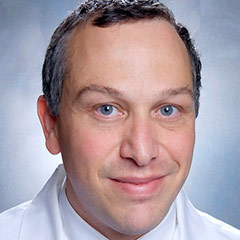 Mesothelioma is so complex, and its care so specialized, that a patient really needs the best care in the world," said thoracic surgeon Abraham Lebenthal, M.D., at Brigham and Women's Hospital in Boston. "We're in a unique position to offer that.
Mesothelioma is so complex, and its care so specialized, that a patient really needs the best care in the world," said thoracic surgeon Abraham Lebenthal, M.D., at Brigham and Women's Hospital in Boston. "We're in a unique position to offer that. LocationIs a specialty center nearby?
LocationIs a specialty center nearby? Travel AbilityAre you willing to travel for treatment?
Travel AbilityAre you willing to travel for treatment? Financial StatusCost could run high. Can you afford it?
Financial StatusCost could run high. Can you afford it? InsuranceReview what your plan covers
InsuranceReview what your plan covers SurgeryWhich centers will perform curative surgery?
SurgeryWhich centers will perform curative surgery? VA HealthcareSpecialists trained to help veterans
VA HealthcareSpecialists trained to help veterans Clinical TrialsEmerging treatments might be best chance for survival
Clinical TrialsEmerging treatments might be best chance for survival ExperienceA specialist with experience is key
ExperienceA specialist with experience is key Do You or a Loved One Have Mesothelioma?
Do You or a Loved One Have Mesothelioma?
